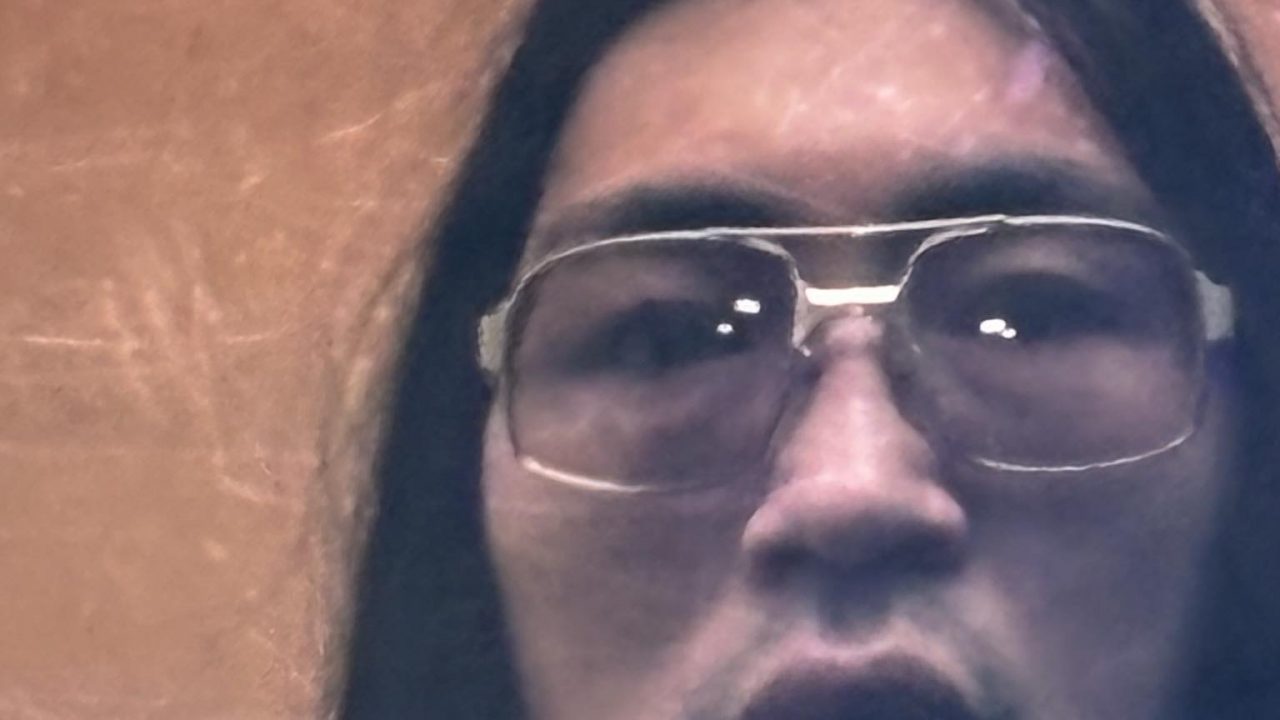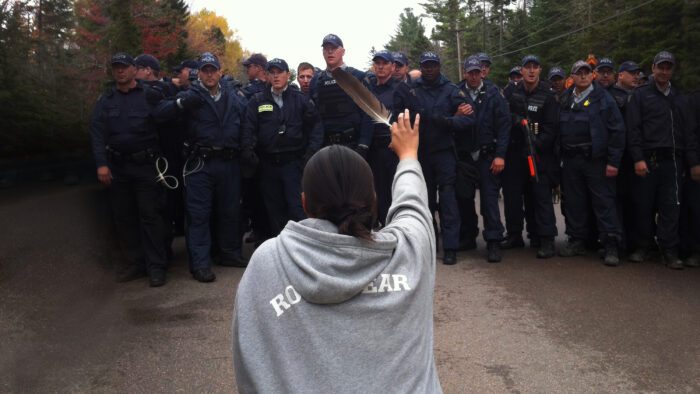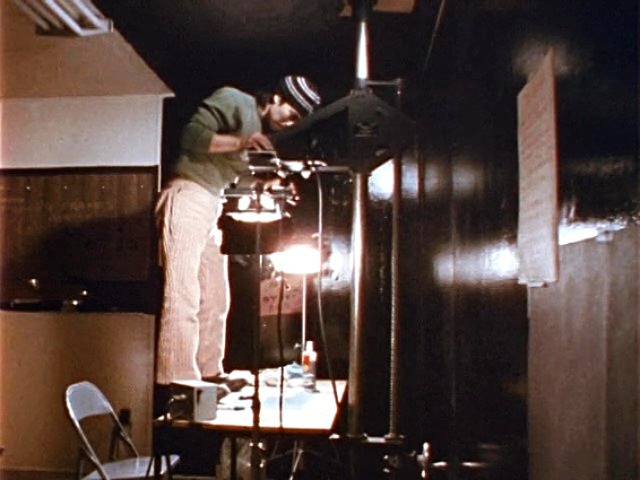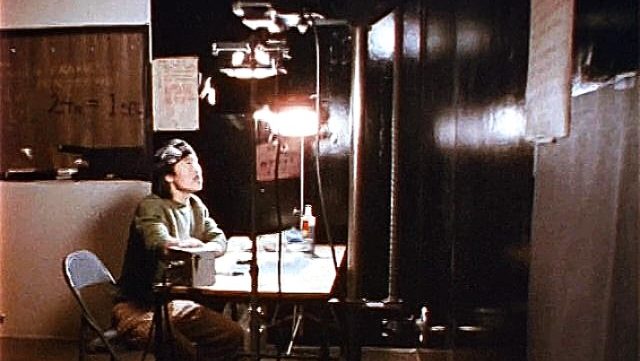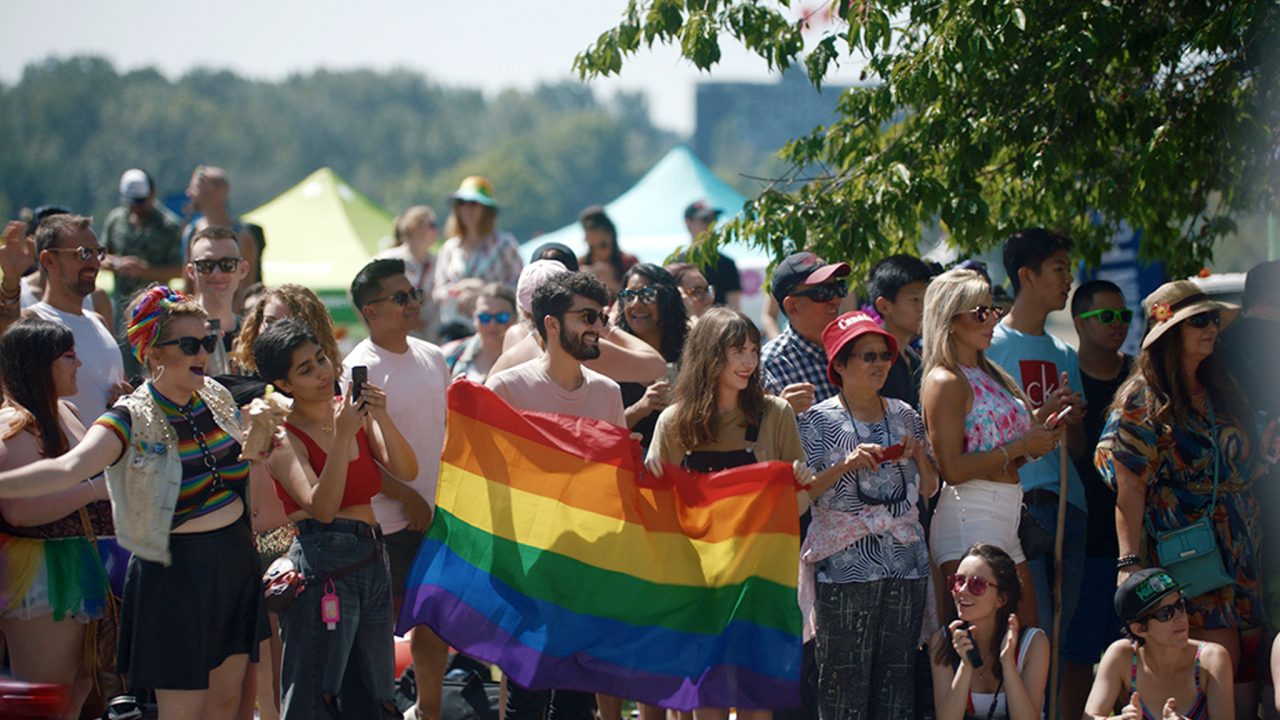
Someone Like Me: Big Risk, Big Reward
Someone Like Me: Big Risk, Big Reward
It’s 2017 and we’re meeting Chris Morrissey, the founder of Rainbow Refugee, at an Italian cafe on a Tuesday afternoon in East Vancouver. It’s the summer of “Despacito” and you can hear the song everywhere on Commercial Drive: on car stereos, through the open doors of barbershops, in the tinny speakers above vegetable stands.
A group of skateboarders careens past us down hot pavement, whipping by a group of old Italian men who’ve claimed the narrow strip of chairs on the sidewalk outside the cafe, laughing and shouting at each other like crows on a power line.
We arrive five minutes early to grab a table, but Chris has already parked herself by an open window with a steaming cup of coffee, dressed in her trademark purple shirt and shorts, her close-cropped white hair sticking up at all angles. We have read so much about her and feel a twist of nerves. A lot is riding on this meeting.
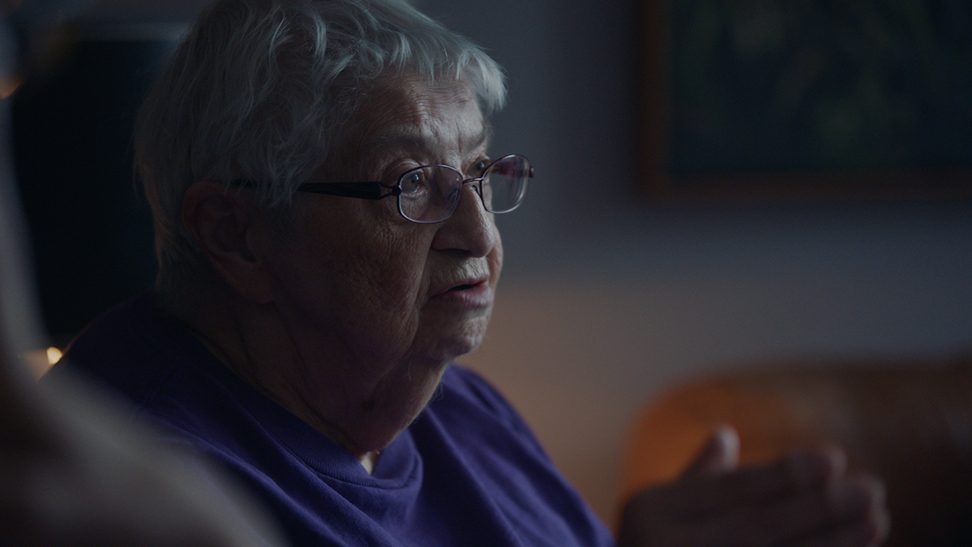
She’s a former nun who lived in Chile during the Pinochet regime. When she returned to Canada with a partner she’d met in South America, they discovered that Canada’s immigration system didn’t recognize their relationship because they were queer. When she started Rainbow Refugee, it was with the goal of helping members of the queer community navigate the complex Canadian immigration system. Twenty years later, the organization has become a global advocate for LGBTQIA2S+ refugees and has helped hundreds of queer people claim asylum in Canada.
“It’s great to meet you both,” Chris says. She has a deep, smooth voice and a kind face. She looks us up and down while shaking hands. It’s hard not to think about how we look from her perspective—probably like one of those couples. Two similar-looking gay guys with beards, wearing button-up shirts and jeans, same height, same build, with no connections to the LGBTQ+ refugee community or first-hand experience of the refugee sponsorship process.
Still, this is where many of our friends had started their own sponsorship journeys, so maybe we shouldn’t be so nervous after all. We make small talk—the weather, summer plans, Chris’s favourite spots on Commercial Drive—until Chris finally asks, “What can you tell me about this film?”
We take a deep breath and launch into our well-rehearsed elevator pitch. We want to make a feature documentary following a Circle of Hope—a group of strangers who come together to support one refugee during their first year of resettlement in Canada. Our plan is to document everything from start to finish, including the newcomer’s experience, and show how the power of community can change lives.
“Just one group?” Chris asks.
We nod, explaining that we will also include Chris in the story and that we see the film as a way to highlight the importance of organizations like Rainbow Refugee in the current global political climate, where queer people can still be imprisoned or killed in over 70 countries around the world because of their gender or sexual identity.
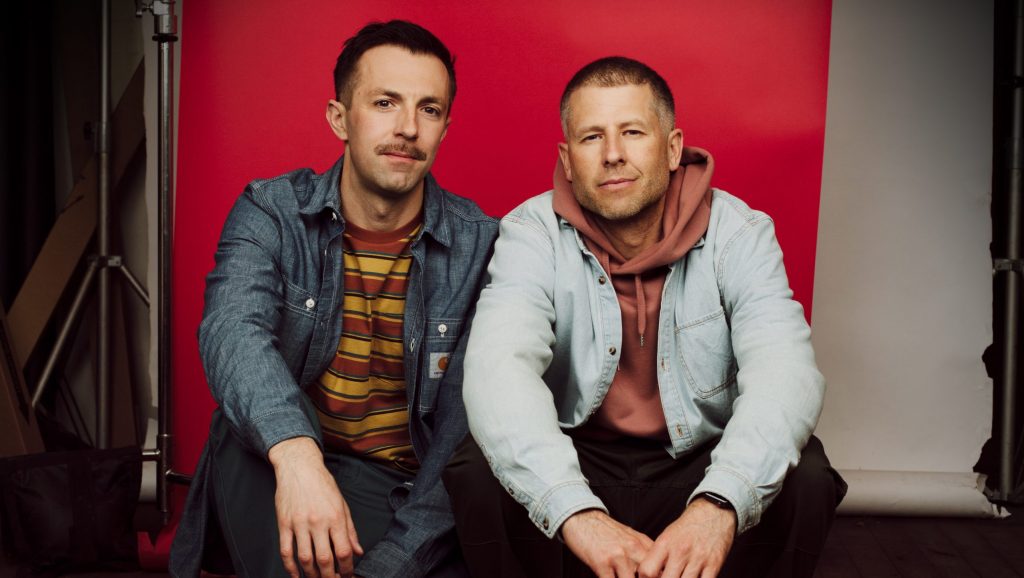
Chris listens patiently as we speak, her coffee cooling untouched on the table. When we finish, she looks at us thoughtfully for a moment before finally speaking.
“Our work is very complex and nuanced,” she says. “I’m not sure this is the right project for us.”
We both nod, trying to hide our disappointment.
“But,” she continues. “If you’re willing to take a chance, there could be a really beautiful story here.”
Chris tells us that the decision isn’t hers to make, that we will have to speak to their board and meet with their sponsorship committee. She explains that Rainbow Refugee forms one circle of volunteers at a time and sometimes that process takes as little as two weeks.
“When they’re ready, you’ll need to be ready, because the people who are waiting for support have already been waiting for years and their lives could be at stake,” Chris says. She pauses and stares at us for a beat. “And one last thing. You won’t be able to contact the newcomer before they come to Canada or ask them to be in your film. If they approach you and want to do this after they arrive, that’s their decision to make. We have a Code of Ethics and you’ll have to agree to those rules.”
We thank Chris for her time and tell her we’ll think about what she has said. As we walk back to our car, we feel elated, but also something else. Self-doubt? Fear? As well as a growing realization that we will have to make some uncomfortable choices if we are going to do this.
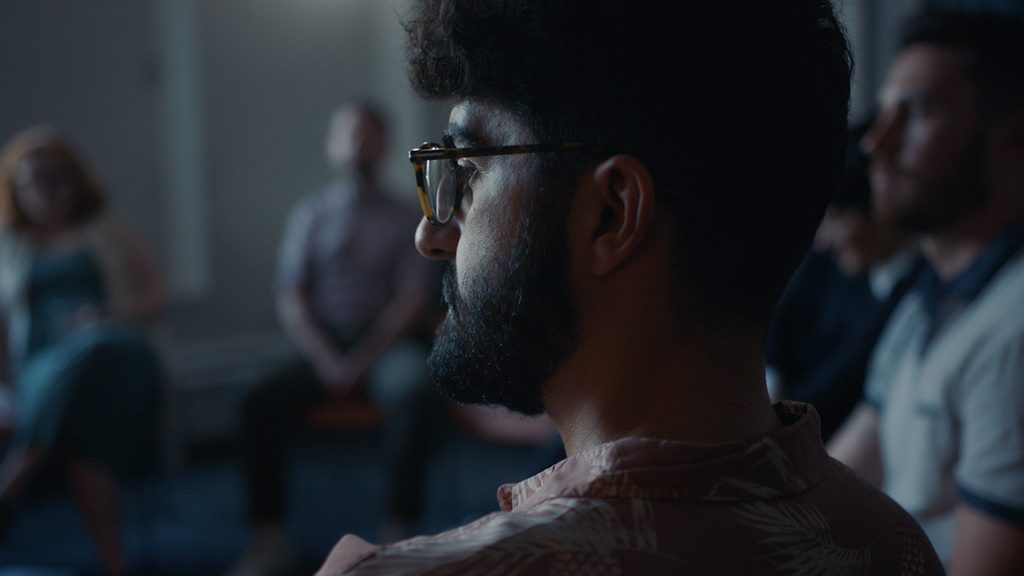
We usually spend years getting to know the people in our documentaries. Not knowing anyone appearing on camera until two weeks before production starts is a gigantic risk, especially if they have trust issues or are afraid of cameras. But even that pales in comparison to a much larger problem: What if we spend months filming with these people, but the person they’re helping resettle (understandably) doesn’t want anything to do with us or the film? Who would want to watch a movie like that, and what if we end up with nothing at all?
But it was a chance we were willing to take, along with the National Film Board of Canada and Rainbow Refugee. Two years after this first meeting with Chris, we started filming and the rest, you can say, is history.
To find out what happens next in this story, watch Someone Like Me for free on NFB.ca.
